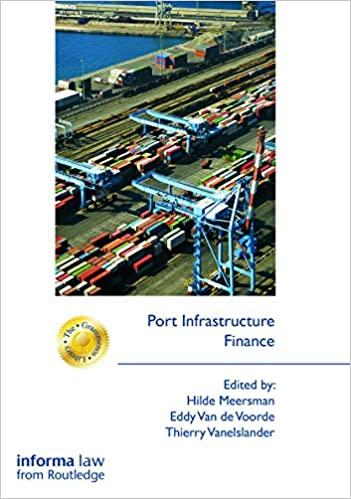Question
Below are the different write up on Market to Market Accounting: Cure or disease. Read carefully and tell us what you agree with or disagree
Below are the different write up on Market to Market Accounting: Cure or disease. Read carefully and tell us what you agree with or disagree with.
Please use at least one external resource to explain Market to Market Accounting.
Write-up A
Mark-to-market account is essential in our economy for the purpose of creating accurate and complete financial statements. Investors, stake holders, and executives need to have clear financial information that is a reflection of market activities to effectively make strategic financial and business based decisions. A financial system based on deception creates repeat recessions as businesses can essentially price assets without consideration of changes in value. Yes, fair-value account procedures will weaken an already broken system. However, understanding that assets value will fluctuate based market conditions should encourage companies to take better and healthy calculated risks.
Write-up B
The concept behind Market to Market accounting involved stating assets on the balance sheet at their current market value instead of using the traditional based accounting which values assets at their historical cost. In looking at this further I would agree that this would give a more accurate view of what the assets are worth. However I also think that there can be problems with this approach, as it can create more panic when these assets are marked down on the balance sheet, and can be viewed as less valuable then they are.
However in reviewing some of the articles and comments out there, I do not think that the Mark to Market accounting necessarily was the cause for all of the financial problems we had earlier. I think investors looking at how these assets were valued on the financial statements can also make judgements on the types of risk and assets they choose to invest in. It seems that this approach can work but the process needs to be reviewed and modified further and hopefully paint a true picture of these assets. One suggestion was to have the mark downs only when conditions were permanent. Whatever the rules on Market to Market Accounting may evolve into this will still be more accurate than using the historical cost approach.
Write-up C
I agree with the author regarding mark-to-market accounting. I think using the fair value of the current behavior and condition of the market is the best way to valuate true asset or liability. For example the statement the author made:
Regulators know that losses have been incurred and that capital has been impaired. But by allowing firms to carry assets on their books at model rather than market prices, the unpleased- ant implications of that fact for capital adequacy may be politely ignored for a time. Even so, if the goal is to avoid forced sales in a distressed market, transparency may nevertheless be the best policy. Better to acknowledge losses and explicitly modify capital regulations to help institutions recover their footing in a difficult economy than to deal with losses by ignoring them. After all, why bother preparing financial statements if they are allowed to obscure the true condition of the firm (Bodie, Z. Kane, A. Marcus, A.J.)?
Mark-to market accounting actually communicates to stakeholder what is really happening with this company and their performance as respect to asset and liability. According to one article I read, the gains and losses from marketable securities are reported differently depending on whether the asset is classified as available-for-sale or trading (Walkinson, 2013). This is a good point because assets that are based on fair value can be easily tracked by recording the changes in capital.
Write-up D
Mark-to-market known as fair value accounting, certain assets and liability are recorded in financial statements at their market values. When the market swings, do to financial statements often ignoring the underlying economic. The purpose of this paper is to provide a brief explanation of the flaws to mark to market so it recommended solutions, which looks back to the assets original purchase price to determine its valuation.
I agree, the temporary dips in the market shouldnt drag down long-term asset. When the marking down the security can have domino effect across entire economy. If industry regulator required the bank to cut back on lending wont allow consumers and businesses who need cash, that can limit spending and job growth.
Therefore, mark-to-market accounting practice from my view it prevents banks and other businesses from marking assets look more valuable than they really are.
Write-up E
Mark-to-market accounting has advantages and disadvantages. While I agree with some comments the author makes, such as "mark-to-market accounting may feed bubbles as well as causing a downward spiral in financial markets in crisis", I disagree when the author states "mark-to-market accounting reflects the true values in the balance sheet of financial institutions and is therefore more informative for investors about true value and risk profile of institution".
Under mark-to-market accounting rules, expected earnings are harder to calculate because an investor cannot tell if gains and losses are due to yield shocks or cash flow shocks, causing the investor to be unaware of the true value. FASB has also attempted to lower, with mark-to-market accounting, the number of companies that "manage" earnings by choosing what and when to sell assets. However, even under mark-to-market accounting, companies can still window dress since markets are not totally liquid.
The theory behind mark-to-market accounting makes perfect sense, but all the information that investors use for determining valuation is not included.
Step by Step Solution
There are 3 Steps involved in it
Step: 1

Get Instant Access to Expert-Tailored Solutions
See step-by-step solutions with expert insights and AI powered tools for academic success
Step: 2

Step: 3

Ace Your Homework with AI
Get the answers you need in no time with our AI-driven, step-by-step assistance
Get Started


